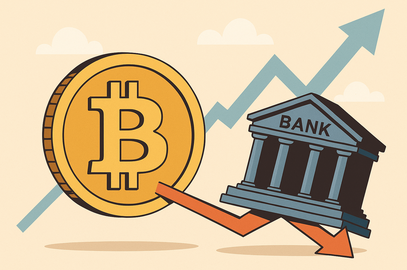? Report: Who Will Be Above or Below AI in the Future?
The world of work is undergoing a profound transformation, largely driven by the rapid development of Artificial Intelligence (AI). One central question is becoming increasingly important: Who will be above AI in the future – and who will be below it?
? The Office Sector in Decline – Administrative Roles Under Pressure
AI systems are already capable of performing simple administrative and routine tasks more efficiently, quickly, and cost-effectively than humans. Initial areas affected include data entry, appointment scheduling, invoice verification, and drafting standardized correspondence. But the trend goes further: More complex tasks such as legal reviews, accounting, and even strategic analysis are increasingly falling within the capabilities of intelligent algorithms.
This development means that office jobs – even those at higher levels – are being gradually replaced or significantly reshaped. What begins with simple tasks will, over time, impact even qualified knowledge-based roles. Companies face the challenge of retraining employees or fundamentally restructuring their organizations.
? Retail in Transition – Automation Displacing Jobs
The impact of automation is also clearly visible in the retail sector. Simple tasks like cashier work – typically performed by checkout staff – are increasingly being replaced by self-checkout systems. Many supermarkets today already require far fewer employees at the checkout.
As a result, customers now perform the payment process themselves, and the remaining staff focus primarily on stocking shelves – a task that is simpler, physically more demanding, and typically lower paid. This trend not only raises questions of fair labor conditions but also underscores the growing need for reskilling and new career paths.
? Skilled Trades and ? IT – The Winners of This Transformation
In contrast, there are professions that are largely resistant to AI-driven automation – most notably skilled trades. Whether carpenter, electrician, painter, or plumber: These jobs require physical presence, craftsmanship, and situational judgment – qualities that machines cannot match anytime soon.
At the same time, IT professions are becoming more valuable than ever. Today’s software developers, system administrators, and digital process designers are in high demand. These roles require not only technical skills but also creativity and problem-solving abilities – things AI alone cannot replicate.
? Germany – A Digital Latecomer
A critical look at Germany reveals that it has fallen behind in IT development over the past 25 years. While Silicon Valley leads the global AI revolution, Germany has invested too little in building its own digital infrastructure and technology ecosystem. Europe as a whole has little independence in this sector.
This is clearly reflected in the MSCI World Index, where the dominant companies are almost exclusively from the USA – Amazon, Apple, Microsoft, Google, Meta. European tech companies barely register. This poses not only economic but also geopolitical risks – and highlights the urgency for action.
???? Advice for the Next Generation: Choose Skilled Trades or IT
Given these developments, my clear recommendation to young people – and to parents helping their children choose a career – is: Consider a career in the skilled trades or in IT. Both sectors are future-proof, offer strong career development, and in the best-case scenario, can lead to self-employment. Whether as an IT specialist or as a master craftsman with your own business: These fields offer real opportunities in a world increasingly shaped by AI.
? Useful AI Tools for Everyday Work
The practical use of AI is not limited to large corporations. It’s already accessible to small and medium-sized businesses and offers tangible benefits in terms of efficiency and productivity. Here are some current tools that can support everyday work:
- ChatGPT / GPT-4 – for content creation, brainstorming, virtual assistance, and customer communication
- Grammarly – for grammar, spelling, and style checking in multiple languages
- Midjourney / DALL·E – to generate images for marketing, presentations, or visual concepts
- Notion AI – to organize projects, ideas, and summaries intelligently
- DeepL Write – for high-quality translations and stylistic improvements
- Runway / Descript – for automated video editing and podcast production
- Pictory – creates short social media videos from blog posts or written content
- Microsoft Copilot / Google Duet AI – AI features directly integrated into Office tools like Word, Excel, and Gmail
These tools are already powerful – and improving rapidly. They offer real competitive advantages for businesses willing to embrace innovation.
? My Offer: Guiding You into the Digital Future
I support businesses in becoming future-ready – by developing digital strategies and introducing AI applications into day-to-day operations. From process analysis to tool selection and employee training, I offer hands-on, practical guidance through the transformation.
Because the right response to the rise of AI isn’t fear – but proactive innovation.
If you’re looking for support in your company’s digital transformation or would like to know which AI tools are best suited to your specific business model, feel free to reach out.




